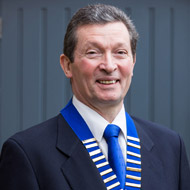Incoming BSAVA president sets out key aims

“Being able to give something back to the profession I love is a great honour" - Philip Lhermette.
Veterinary education in the 21st century, driving the veterinary agenda forward and holistic support for the veterinary profession will be the key themes underpinning incoming BSAVA president Philip Lhermette’s year in office.
“One of the major challenges ahead will be Brexit and the impact it will have on jobs, pharmaceuticals, research and many other aspects of veterinary life and life in general,” he said. “We are working in close association with the BVA and others to try and mitigate the impact these changes will have on the profession.”
He added that BSAVA passionately supports every professional throughout their career. However, the responsibilities taken on by new graduates can seem really daunting.
“I would like to try to instil in younger members of the profession the passion I still have for veterinary medicine and surgery and help BSAVA provide even more support where it is needed most,” he said.
Philip, who runs a private practice in Kent, will oversee the opening of 21st-century veterinary education facilities at the refurbished BSAVA headquarters. The facilities will deliver first-class science and CPD for BSAVA members and develop opportunities for new CPD both in the UK and overseas.
Philip also aims to build on the holistic vision of support for the profession established by his predecessor John Chitty. He will champion further initiatives to support a ‘no blame’ culture across the profession, focus on greater engagement with students and increase support for graduates in their first three years in practice.
To help drive the veterinary agenda forward, Philip will work with BSAVA’s Policy Groups to address many of the challenges faced at a local, national and international level and provide valuable support services to its members.
“Being able to give something back to the profession I love is a great honour and I am very proud of BSAVA’s role in supporting members and creating a brighter future,” said Philip. “Once you leave the small world you inhabit in general practice and start to understand where we fit into the global picture as a profession, you realise the importance of communication and cooperation.”



 The veterinary mental health charity Vetlife is inviting the veterinary community to join it for a sponsored cold-water dip.
The veterinary mental health charity Vetlife is inviting the veterinary community to join it for a sponsored cold-water dip.